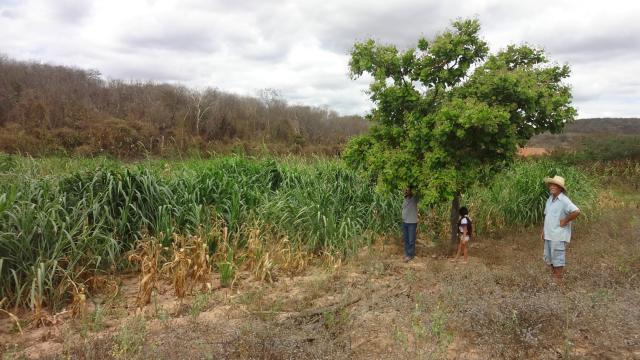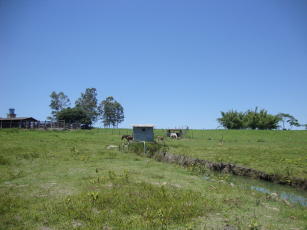Embrapa Soils
Underground dam to be presented in Honduras
The researchers Maria Sonia Lopes da Silva and Flávio Adriano Marques from Embrapa Soils' Research Implementation Unit in Recife will participate in the mission "underground dam activity" in Honduras from October 31 to November 07, within a US-Brazil-Honduras Trilateral Technical Cooperation Project.
The mission is organized by the Brazilian Cooperation Agency (Agência Brasileira de Cooperação - ABC) and is part of the US-Brazil-Honduras Trilateral Technical Cooperation Project Reinforcement to food and nutritional security in Southern Honduras – Stage I, coordinated by the Ministry of External Relations Brazilian Cooperation Agency (ABC/MRE) and carried out by Embrapa in Honduras.
Capacity-building activities will be condensed in five days of intensive training. On the first day, there will be a theoretical lesson on concept, function, and parameters for the construction, as well as geological characteristics and soil potentialities that influence the choice of an appropriate place to build an underground dam. Practical training will take place on the following days, when participants alongside their instructors will select a suitable place to build an underground dam. After the venue is selected, they will start the building process by defining the location for the wall ditch and for the spillway and well, for instance.
"The technicians thus trained will become multipliers of the technology in the region, able to disseminate the information, concepts and construction techniques shared during the capacity-building event", asserted Henoque Ribeiro da Silva, from Embrapa's Secretariat for International Relations and project coordinator.
Other partners in this activity are the Honduras Directorate of Agricultural Science and Technology (DICTA-Honduras), the Honduras Secretariat of Agriculture and Livestock (SAG-Honduras) and the University of Florida (USA).
The underground dam is a social technology that has promoted sovereignty and food and nutritional security for farmer families, as it contributes to increased access to and use of water. It is built near river beds, streams, and drainage lines. The water collected from the rains helps families produce different crops all year round.
Carlos Dias (20.395 MTb RJ)
Embrapa Soils
Press inquiries
carlos.diniz-dias@embrapa.br
Phone number: +55 21 2179-4578
Further information on the topic
Citizen Attention Service (SAC)
www.embrapa.br/contact-us/sac/


